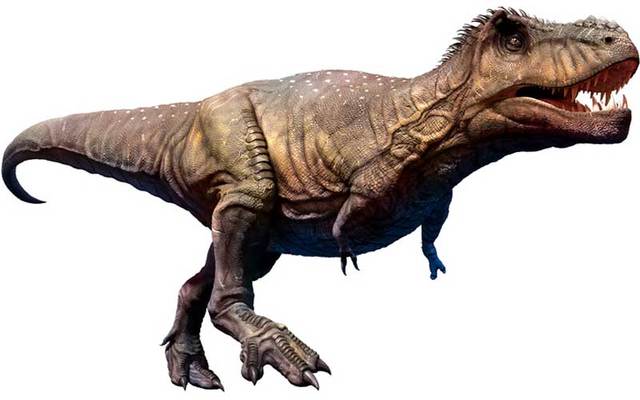Navigation
Install the app
How to install the app on iOS
Follow along with the video below to see how to install our site as a web app on your home screen.
Note: This feature may not be available in some browsers.
More options
Style variation
You are using an out of date browser. It may not display this or other websites correctly.
You should upgrade or use an alternative browser.
You should upgrade or use an alternative browser.
The big question about life on other planets: 1000000000000000000000 planets in the universe
- Thread starter shockedcanadian
- Start date
zaangalewa
Gold Member
- Jan 24, 2015
- 25,088
- 2,678
- 140
Says you. The people in it say it is.Scientology is not a religion.
What changes nothing in the fact, that scientology is not a religion but a criminal organisation - and only a criminal organisation - and nothing else. That victims of mind manipulations feel guilty for the crimes they have to suffer on their own, is only one of the brainwashing antihuman slavery methods of the criminal organisation scientology. Scientologists are in general the worst slave holders - whether they are slaves on their own or not. But the very worst criminals are in leading positions of scientology. Every leading idiot of scientology - on whatever level - knows very well on his own that he speaks and is doing a criminal bullshit only on reason to get the money and manpower of their victims and to make them to slaves of scientology.
Last edited:
zaangalewa
Gold Member
- Jan 24, 2015
- 25,088
- 2,678
- 140
What is this?!? When did it exist? And did humans exist at the same time? Are you really smart? Or really dumb?
Let's figure it out!

This is Hugo. A nice guy, says his girlfriend. You and he have a common ancestor. And other descendents of the common ancestor with this creature honored him by founding the band T-Rex. And again others of the descendents of the common ancestor tried to flee this whole situation with a Zeppelin.
Last edited:
zaangalewa
Gold Member
- Jan 24, 2015
- 25,088
- 2,678
- 140
Oh by the way: The oldest campfire ever was found was 1.5 million years old. Could be even about 2 million years ago our ancestors started to use camp fires.

Last edited:
zaangalewa
Gold Member
- Jan 24, 2015
- 25,088
- 2,678
- 140
Okay...but i would like to know how an undifferentiated blob forms thoughts, or metabolizes food, or performs specific functions without differentiated structures.Toob, you like to parade yourself like you're mister science expert, and insulting people left and right who haven't done shit to you yet. Who the fuck made you the science guru on this board?
You need to calm down!
Sometimes I say things in jest, they're not to be taken seriously. But shit... you not only attack me, but you attack everyone! As much as Bond and I disagree and insult each other, at least we have a history.
I don't really care how smart you think you are, the reality is you sound like a pompous ass, using your keyboard muscles to make your penis seem bigger.
Keep in mind you have 16,000 more posts than me, and I've been here 4 years longer than you. So as far as pathetic keyboard worlds, you win that category.
So, tell me what your idea of what an alien life-form that traveled to Earth in a spaceship would possibly look like?
Calm down little jellybean.It doesn't take a "science expert" to know your theories on life in space are garbage! Or that being a "Jello" life form would be an advantage over us, where jello can deform under G force with no harm to any shape while we would be splatter on the wall. There are two kinds of people in this world RWS, those that know more than they tell, and the many found on this board like you who tell more than they know!
I never said an undifferentiated blob was a space alien ship traveler. Eukaryotes formed here over 2 billion years ago. Why can't a space alien be a blob without a spine (kind of like Yaphit on The Orville) and still have specialized cells? You are asking questions no one can answer without having traveled all over the galaxy to see many advanced life forms elsewhere. I think most will take on a general pattern similar to ours; there is a reason why nature chose our form. All I was saying is that being a blob might make it easier not harder to endure space travel.
Our descendants could for example become a kind of cellular lumps without any intelligence - but with the ability to resist in a poisened environment. That's as possible as anything else. Evolution has no targets.
And multicellular organisms exist since about 600 million years on Earth. Single cells existed before yet about 3.6 billion years. So the first 6 days of the life of life on planet Earth we were single cells, but since Sunday - or better to say since Sabbat - we are multi-cellular organisms. An I'm sure god would say: "And so it is good." Today a single cell needs - with the help of another single cell - only 9 month to create the body of a new multicellular human being during gestation.
Last edited:
Fort Fun Indiana
Diamond Member
- Mar 10, 2017
- 110,300
- 99,389
- 3,645
Oh, it's both...that scientology is not a religion but a criminal organisation
- Banned
- #807
There's probably microscopic organisms out there, but probably not like life on earth. Too many things have to come together perfectly to reproduce an environment like ours.
There is a very good book that talks about that.
Rare Earth (book) - Wikipedia
Rare Earth: Why Complex Life Is Uncommon in the Universe
The book argues that the universe is fundamentally hostile to complex life and that while microbial life may be common in the universe, complex intelligent life (like the evolution of biological complexity from simple life on Earth) required an exceptionally unlikely set of circumstances, and therefore complex life is likely to be extremely rare. The book argues that among the essential criteria for life are a terrestrial planet with plate tectonics and oxygen, a large moon, magnetic field, a gas giant like Jupiter for protection and an orbit in the habitable zone of the right kind of star. Additionally, events during the Earth's geological past such as Snowball Earth, the Cambrian Explosion, and the various mass extinction events that nearly destroyed life on Earth arguably make the existence and survival of complex life rare as well. The book also suggests that animal life, having taken hundreds of millions of years to evolve, unlike bacteria, which were the first life to appear on Earth, is extremely fragile to sudden and severe changes in the environment, and therefore are very prone to becoming extinct very easily and quickly within a short period of geological time, while microbial life is much more resilient to such changes.
The book also argues that due to the immense size of the universe, even if another habitable planet like Earth does exist elsewhere, and that the Earth is not the only planet in the universe with complex life, such planets would still only appear in relatively small numbers compared to planets that are habitable only to bacteria, and would most likely be too far away for any intelligent life, if they exist, to make contact with each other as well as with our own planet, as the vast distances between those planets would essentially isolate them, and by the time any signals reach their destination, the planet the signal originated from may no longer be habitable anymore except for at least bacteria, and whatever life that sent said signal may already be extinct, making any form of contact with each other useless. Finally, the book serves as a warning about the current degradation of the Earth's biosphere due to human activities, where it suggests that if humans destroy a significant portion of animal life on Earth, then they would also destroy that same amount of that kind of life in the entire universe.

Fort Fun Indiana
Diamond Member
- Mar 10, 2017
- 110,300
- 99,389
- 3,645
Even if "rare", that could still mean literally trillions of examples of complex life in the history of our universe.There's probably microscopic organisms out there, but probably not like life on earth. Too many things have to come together perfectly to reproduce an environment like ours.
There is a very good book that talks about that.
Rare Earth (book) - Wikipedia
Rare Earth: Why Complex Life Is Uncommon in the Universe
The book argues that the universe is fundamentally hostile to complex life and that while microbial life may be common in the universe, complex intelligent life (like the evolution of biological complexity from simple life on Earth) required an exceptionally unlikely set of circumstances, and therefore complex life is likely to be extremely rare. The book argues that among the essential criteria for life are a terrestrial planet with plate tectonics and oxygen, a large moon, magnetic field, a gas giant like Jupiter for protection and an orbit in the habitable zone of the right kind of star. Additionally, events during the Earth's geological past such as Snowball Earth, the Cambrian Explosion, and the various mass extinction events that nearly destroyed life on Earth arguably make the existence and survival of complex life rare as well. The book also suggests that animal life, having taken hundreds of millions of years to evolve, unlike bacteria, which were the first life to appear on Earth, is extremely fragile to sudden and severe changes in the environment, and therefore are very prone to becoming extinct very easily and quickly within a short period of geological time, while microbial life is much more resilient to such changes.
The book also argues that due to the immense size of the universe, even if another habitable planet like Earth does exist elsewhere, and that the Earth is not the only planet in the universe with complex life, such planets would still only appear in relatively small numbers compared to planets that are habitable only to bacteria, and would most likely be too far away for any intelligent life, if they exist, to make contact with each other as well as with our own planet, as the vast distances between those planets would essentially isolate them, and by the time any signals reach their destination, the planet the signal originated from may no longer be habitable anymore except for at least bacteria, and whatever life that sent said signal may already be extinct, making any form of contact with each other useless. Finally, the book serves as a warning about the current degradation of the Earth's biosphere due to human activities, where it suggests that if humans destroy a significant portion of animal life on Earth, then they would also destroy that same amount of that kind of life in the entire universe.

RWS
Gold Member
- Sep 24, 2013
- 4,547
- 409
- 130
- Banned
- #809
Okay...but i would like to know how an undifferentiated blob forms thoughts, or metabolizes food, or performs specific functions without differentiated structures.Toob, you like to parade yourself like you're mister science expert, and insulting people left and right who haven't done shit to you yet. Who the fuck made you the science guru on this board?
You need to calm down!
Sometimes I say things in jest, they're not to be taken seriously. But shit... you not only attack me, but you attack everyone! As much as Bond and I disagree and insult each other, at least we have a history.
I don't really care how smart you think you are, the reality is you sound like a pompous ass, using your keyboard muscles to make your penis seem bigger.
Keep in mind you have 16,000 more posts than me, and I've been here 4 years longer than you. So as far as pathetic keyboard worlds, you win that category.
So, tell me what your idea of what an alien life-form that traveled to Earth in a spaceship would possibly look like?
Calm down little jellybean.It doesn't take a "science expert" to know your theories on life in space are garbage! Or that being a "Jello" life form would be an advantage over us, where jello can deform under G force with no harm to any shape while we would be splatter on the wall. There are two kinds of people in this world RWS, those that know more than they tell, and the many found on this board like you who tell more than they know!
I never said an undifferentiated blob was a space alien ship traveler. Eukaryotes formed here over 2 billion years ago. Why can't a space alien be a blob without a spine (kind of like Yaphit on The Orville) and still have specialized cells? You are asking questions no one can answer without having traveled all over the galaxy to see many advanced life forms elsewhere. I think most will take on a general pattern similar to ours; there is a reason why nature chose our form. All I was saying is that being a blob might make it easier not harder to endure space travel.
Our descendants could for example become a kind of cellular lumps without any intelligence - but with the ability to resist in a poisened environment. That's as possible as anything else. Evolution has no targets.
And multicellular organisms exist since about 600 million years on Earth. Single cells existed before yet about 3.6 billion years. So the first 6 days of the life of life on planet Earth we were single cells, but since Sunday - or better to say since Sabbat - we are multi-cellular organisms. An I'm sure god would say: "And so it is good." Today a single cell needs - with the help of another single cell - only 9 month to create the body of a new multicellular human being during gestation.
Okay...but i would like to know how an undifferentiated blob forms thoughts, or metabolizes food, or performs specific functions without differentiated structures.Toob, you like to parade yourself like you're mister science expert, and insulting people left and right who haven't done shit to you yet. Who the fuck made you the science guru on this board?
You need to calm down!
Sometimes I say things in jest, they're not to be taken seriously. But shit... you not only attack me, but you attack everyone! As much as Bond and I disagree and insult each other, at least we have a history.
I don't really care how smart you think you are, the reality is you sound like a pompous ass, using your keyboard muscles to make your penis seem bigger.
Keep in mind you have 16,000 more posts than me, and I've been here 4 years longer than you. So as far as pathetic keyboard worlds, you win that category.
So, tell me what your idea of what an alien life-form that traveled to Earth in a spaceship would possibly look like?
Calm down little jellybean.It doesn't take a "science expert" to know your theories on life in space are garbage! Or that being a "Jello" life form would be an advantage over us, where jello can deform under G force with no harm to any shape while we would be splatter on the wall. There are two kinds of people in this world RWS, those that know more than they tell, and the many found on this board like you who tell more than they know!
I never said an undifferentiated blob was a space alien ship traveler. Eukaryotes formed here over 2 billion years ago. Why can't a space alien be a blob without a spine (kind of like Yaphit on The Orville) and still have specialized cells? You are asking questions no one can answer without having traveled all over the galaxy to see many advanced life forms elsewhere. I think most will take on a general pattern similar to ours; there is a reason why nature chose our form. All I was saying is that being a blob might make it easier not harder to endure space travel.
Our descendants could for example become a kind of cellular lumps without any intelligence - but with the ability to resist in a poisened environment. That's as possible as anything else. Evolution has no targets.
And multicellular organisms exist since about 600 million years on Earth. Single cells existed before yet about 3.6 billion years. So the first 6 days of the life of life on planet Earth we were single cells, but since Sunday - or better to say since Sabbat - we are multi-cellular organisms. An I'm sure god would say: "And so it is good." Today a single cell needs - with the help of another single cell - only 9 month to create the body of a new multicellular human being during gestation.
But that body formation has to be capable of building the things necessary to create a spaceship. A mass of lump cells can't do that.
Uncensored2008
Libertarian Radical
I don't care whether there is life on other planets, can't we ship the democrats to one anyway? 

Fort Fun Indiana
Diamond Member
- Mar 10, 2017
- 110,300
- 99,389
- 3,645
Good god you freak, are 5 billion crybaby right wing jackass threads not enough for you?I don't care whether there is life on other planets, can't we ship the democrats to one anyway?
Uncensored2008
Libertarian Radical
Even if "rare", that could still mean literally trillions of examples of complex life in the history of our universe.There's probably microscopic organisms out there, but probably not like life on earth. Too many things have to come together perfectly to reproduce an environment like ours.
There is a very good book that talks about that.
Rare Earth (book) - Wikipedia
Rare Earth: Why Complex Life Is Uncommon in the Universe
The book argues that the universe is fundamentally hostile to complex life and that while microbial life may be common in the universe, complex intelligent life (like the evolution of biological complexity from simple life on Earth) required an exceptionally unlikely set of circumstances, and therefore complex life is likely to be extremely rare. The book argues that among the essential criteria for life are a terrestrial planet with plate tectonics and oxygen, a large moon, magnetic field, a gas giant like Jupiter for protection and an orbit in the habitable zone of the right kind of star. Additionally, events during the Earth's geological past such as Snowball Earth, the Cambrian Explosion, and the various mass extinction events that nearly destroyed life on Earth arguably make the existence and survival of complex life rare as well. The book also suggests that animal life, having taken hundreds of millions of years to evolve, unlike bacteria, which were the first life to appear on Earth, is extremely fragile to sudden and severe changes in the environment, and therefore are very prone to becoming extinct very easily and quickly within a short period of geological time, while microbial life is much more resilient to such changes.
The book also argues that due to the immense size of the universe, even if another habitable planet like Earth does exist elsewhere, and that the Earth is not the only planet in the universe with complex life, such planets would still only appear in relatively small numbers compared to planets that are habitable only to bacteria, and would most likely be too far away for any intelligent life, if they exist, to make contact with each other as well as with our own planet, as the vast distances between those planets would essentially isolate them, and by the time any signals reach their destination, the planet the signal originated from may no longer be habitable anymore except for at least bacteria, and whatever life that sent said signal may already be extinct, making any form of contact with each other useless. Finally, the book serves as a warning about the current degradation of the Earth's biosphere due to human activities, where it suggests that if humans destroy a significant portion of animal life on Earth, then they would also destroy that same amount of that kind of life in the entire universe.

Yep, and zero chance you or anyone else would ever know of them.
Aliens have replaced angels in the weak minded.
RWS
Gold Member
- Sep 24, 2013
- 4,547
- 409
- 130
- Banned
- #819
Flying disc, with intertwining serpents representing our Lord and Creator Enki. The Lord of Science and Medicine. In a DNA formation. This is not new knowledge, it is old knowledge. Predating the Bible by a few thousand years. But it is the symbol of medicine in modern and ancient times.
Last edited:
Similar threads
- Replies
- 28
- Views
- 140
- Replies
- 33
- Views
- 193
- Replies
- 11
- Views
- 330
- Replies
- 3
- Views
- 275
New Topics
-
-
Mexican Navy Ship Just Crashed Into The Brooklyn Bridge!!
- Started by RhodyPatriot
- Replies: 94
-
one of the most important brain research papers in 50 years
- Started by scruffy
- Replies: 2
-
-
Video: Repo Man Wrecks Entire Block of Cars Trying to Repo One Truck
- Started by RhodyPatriot
- Replies: 16







